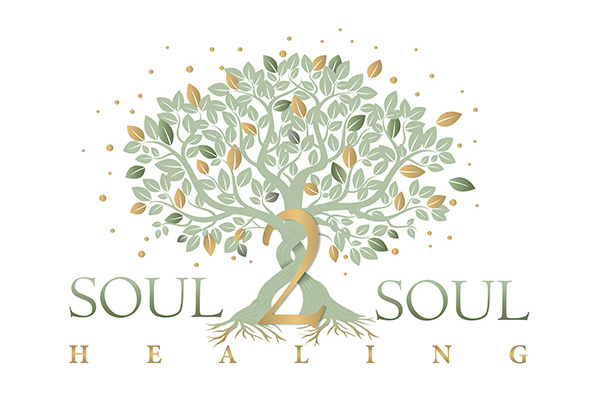Who hasn’t heard of the marvels of soy? The marketing bandwagon has touted soy as the perfect health food for decades. But could something that sounds so healthful actually be dangerous?
If you take the time to look into the actual science,then the answer is yes.
Thousands of studies link soy to malnutrition, digestive distress, immune system breakdown, thyroid dysfunction, cognitive decline, reproductive disorders and infertility –even cancer and heart disease.
One of the primary reasons it would be wise for you to avoid soy is that more than 90 percent of soybeans grown in the United States are genetically modified. Since the introduction of genetically engineered foods in 1996, we’ve had an upsurge in low birth weight babies, infertility, and other problems in the U.S., and animal studies have shown devastating effects from genetically engineered soyincluding allergies, sterility, birth defects, and offspring death rates up to five times higher than normal.
Soybean crops are also heavily sprayed with chemical herbicides, such glyphosate, which a French team of researchers have found to be carcinogenic. Soybeans — even organically grown soybeans — naturally contain “antinutrients” such as saponins, soyatoxin, phytates, trypsin inhibitors, goitrogens and phytoestrogens. Traditional fermentation destroys these antinutrients, which allows your body to enjoy soy’s nutritional benefits. ?However, most Westerners do not consume fermented soy, but rather
unfermented soy, mostly in the form of soymilk, tofu, TVP, and soy infant formula.
Unfermented soy has the following 10 adverse affects on your body:
1. High Phytic Acid (Phytates):
Reduces assimilation of calcium, magnesium, copper, iron and zinc. Phytic acid in soy is not neutralized by ordinary preparation methods such as soaking, sprouting and long, slow cooking, but only with long fermentation. High-phytate diets have caused growth problems in children.
2. Trypsin inhibitors:
Interferes with protein digestion and may cause pancreatic disorders. In test animals, trypsin inhibitors in
soy caused stunted growth.
3. Goitrogens:
Potent agents that block your synthesis of thyroid
hormones and can cause hypothyroidism and thyroid cancer.
In infants, consumption of soy formula has been linked with auto immune thyroid
disease. Goitrogens interfere with iodine metabolism.
4. Phytoestrogens/Isoflavones:
Plant compounds resembling human estrogen can block your normal estrogen and disrupt endocrine function, cause infertility, and increase your risk for breast cancer.
5. Hemagglutinin:
A clot-promoting substance that causes your red
blood cells to clump, making them unable to properly absorb and distribute oxygen to your tissues.
6. Synthetic Vitamin D:
Soy foods increase your body’s vitamin D
requirement, which is why companies add synthetic vitamin D2 to soymilk (a toxic form of vitamin D).
7. Vitamin B12:
Soy contains a compound resembling vitamin B12 that
cannot be used by your body, so soy foods can actually contribute to B12 deficiency, especially among vegans.
8. Protein Denaturing:
Fragile proteins are denatured during high temperature processing to make soy protein isolate and textured vegetable protein (TVP). Chemical processing of soy protein results in the
formation of toxic lysinoalanine and highly carcinogenic nitrosamines.
9. MSG:
Free glutamic acid, or MSG, is a potent neurotoxin.
MSG is formed during soy food processing, plus additional MSG is often added to mask soy’s unpleasant taste.
10. Aluminum and Manganese:
Soy foods contain high levels of aluminum, which is toxic to your nervous system and kidneys, and manganese, which wreaks havoc on your baby’s immature metabolic system.
Soy’s antinutrients are quite potent. Drinking just two glasses of soymilk
daily provides enough of these compounds to alter a woman’s menstrual cycle. But if you feed soy to your infant or child, these effects are magnified a thousand-fold. Infants fed soy formula may have up to
20,000 times more estrogen circulating through their bodies as those fed other formulas. You should NEVER feed your infant a soy-based formula!
In fact, infants fed soy formula take in an estimated five birth control pills’ worth of estrogen every day. As dangerous as unfermented soy is, fermented soy from organic soybeans is a different story altogether and can be a beneficial part of your diet. Fermented soy is a great source of vitamin K2, and K2 (combined
with vitamin D) is essential in preventing osteoporosis, cardiovascular disease, dementia, and various types of cancer. Note that tofu is NOT on this list and is among the soy foods I do not recommend.
Traditionally fermented soy products include:
– Miso
– Tempeh
– Natto
– Soy sauce (as long as it’s fermented in the traditional way, and not all are)
Contrary to what you may have heard, Asians do not consume large amounts of soy. They use small amounts as a condiment (about two teaspoons daily), but not as a primary protein source. And the type of soy they consume is traditionally fermented soy.
Source: Dr. Mercola

 e best advice that I share with my patients is that if they feel significantly better off of gluten or feel worse when they reintroduce it, then gluten is likely a problem for them. In order to get accurate results from this testing method you must elimination 100% of the gluten from your diet.
e best advice that I share with my patients is that if they feel significantly better off of gluten or feel worse when they reintroduce it, then gluten is likely a problem for them. In order to get accurate results from this testing method you must elimination 100% of the gluten from your diet.